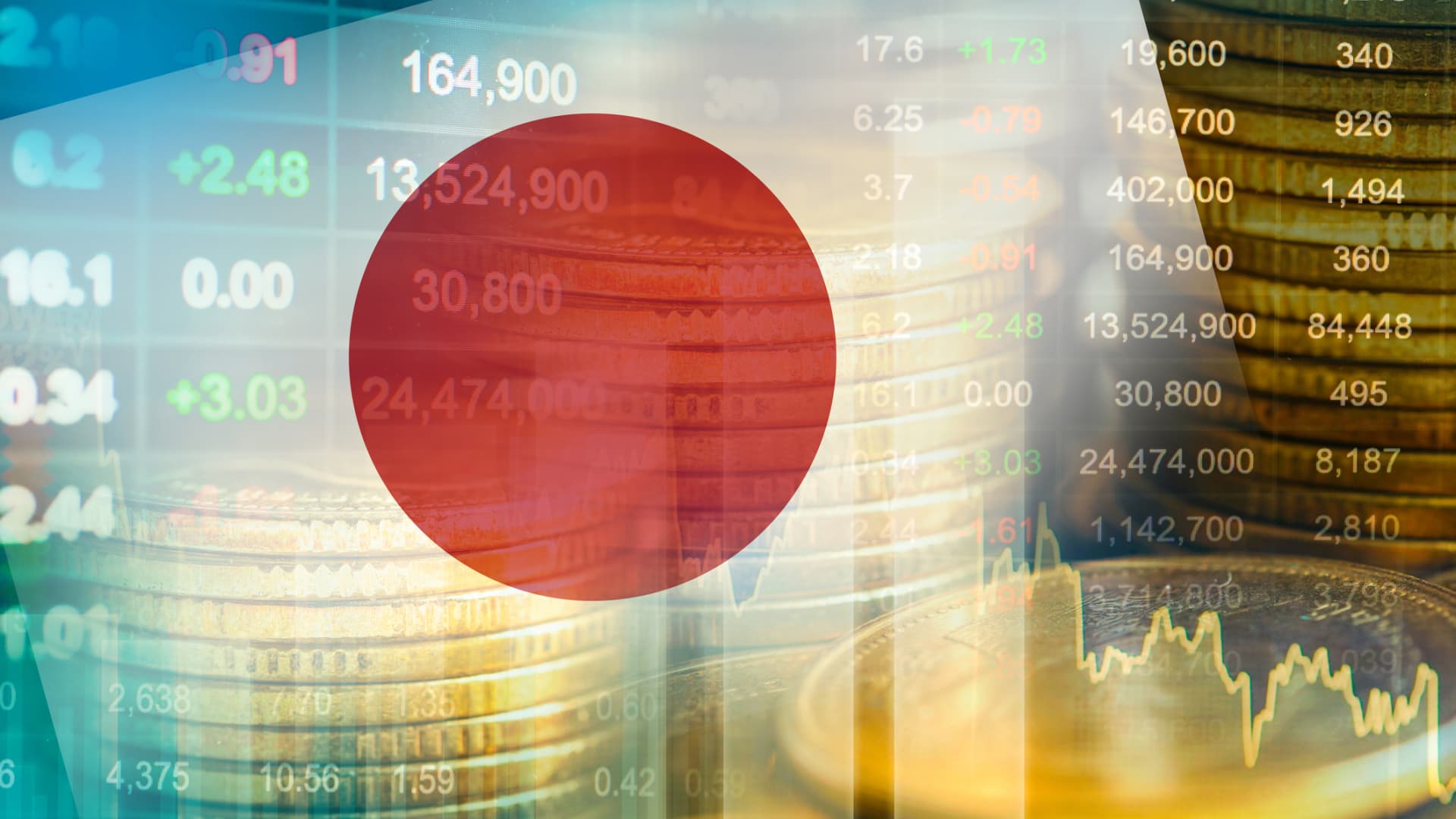An editorial picture of the Japan flag set against an economic trend graph and images associated with the stock market, finance and digital technology.
Manassanant Pamai | Istock | Getty Images
The total value of private equity deals in Asia Pacific last year fell to its lowest since 2014 as fundraising dropped to a 10-year low amid slowing growth, high interest rates and volatile public markets, according to management consultancy Bain & Company.
Japan though, was an outlier, with deal value jumping 183% in 2023 from a year earlier, making it the largest private equity market in Asia Pacific for the first time, according to Bain’s 2024 Asia-Pacific Private Equity Report released Monday.
Japan is an attractive investment due to its deep pool of target companies with “significant pool for performance improvements” and corporate governance reform pressure on Japan Inc to dispose of non-core assets, Bain said.
Overall, deal value in the Asia-Pacific region declined more than 23% to $147 billion from a year earlier. This is also 35% below the 2018-2022 average value — a pace of decline that’s consistent with the global slowdown — and nearly 60% lower than the $359 billion peak in 2021, Bain said.
Exits plunged 26% to $101 billion in 2023 from a year ago — of which 40% were via initial public offerings. Greater China accounted for 89% of the IPO exit value in Asia Pacific, with a vast majority listing in Shanghai and Shenzhen. Excluding Greater China IPOs, the total Asia-Pacific exit value was $65 billion.
“The outlook for exits in 2024 remains uncertain, but successful funds are not waiting for markets to bounce back. They are paving the way for sales that meet their target returns by using strategy reviews to highlight the potential value of deals to buyers,” Lachlan McMurdo, co-author of the firm’s annual report said in a statement.
“This approach can reduce the inventory of aging assets and return cash to limited partners through 2024, even if the overall exit market remains depressed,” he added.
Bain said many leading private equity funds have turned to exploring alternative asset classes, such as infrastructure operations with medium to high returns including renewable energy storage and data centers and airports.
Here are some highlights of the report:
- Buyouts constituted 48% of total deal value in Asia Pacific last year, exceeding the value of ‘growth deals’ — involving companies that expand fast and often disrupt industries — for the first time since 2017.
- Despite a declining pool of investors, Bain said private equity returns are still more attractive than those from the public markets on a five-, 10 and 20-year horizon.
The timing of a recovery still remains unclear, Bain said, even though there were signs of some improvements toward the end of last year. When the recovery does take effect, disruptive technologies such a generative artificial intelligence are among new areas that hold “great promise,” Bain added.
Japan, India and Southeast Asia, are among the Asia-Pacific markets being viewed favorably for private equity investment opportunities in the next 12 months, Bain said, citing Preqin’s 2023 investor survey.
Read the original article here
